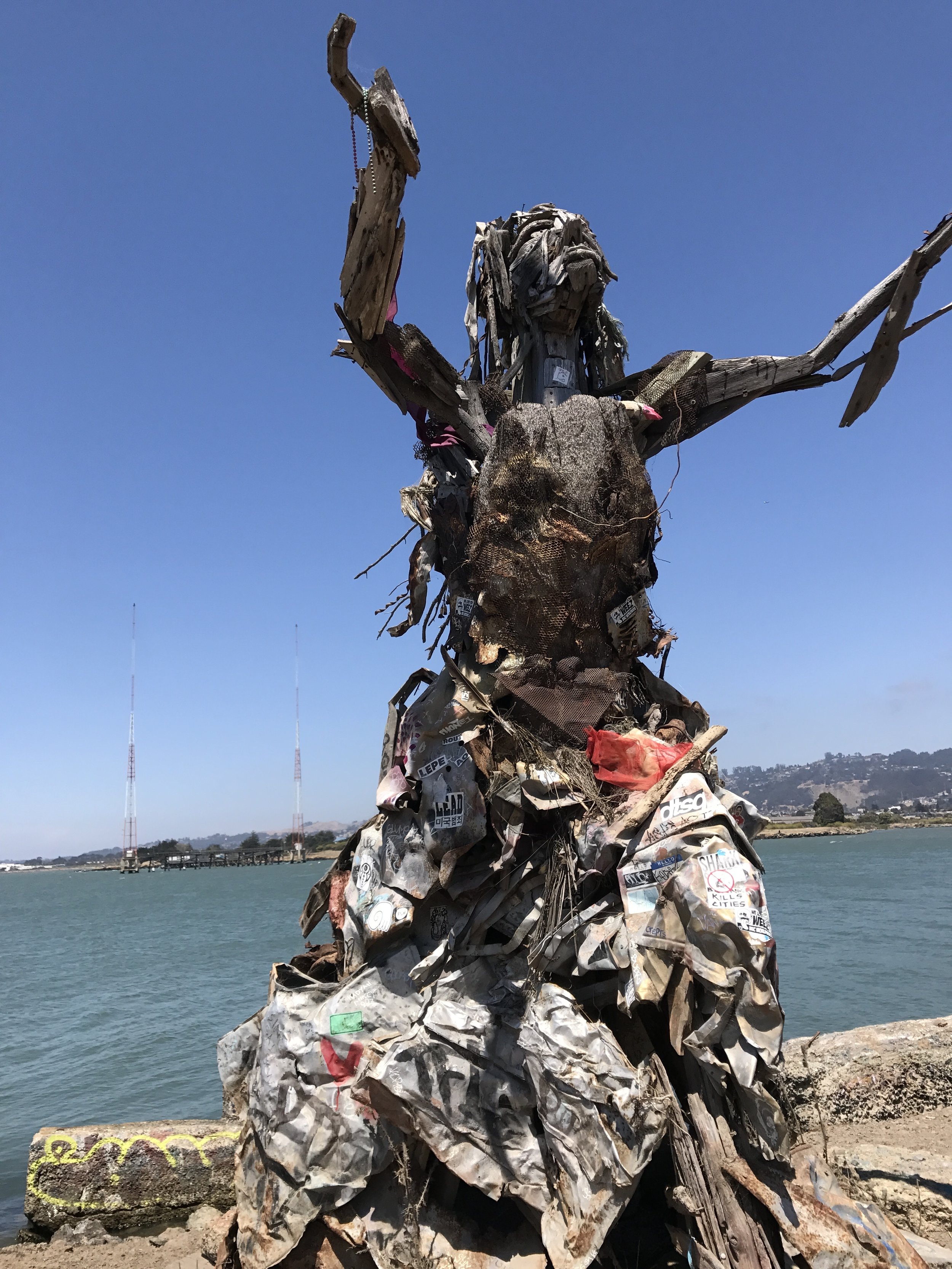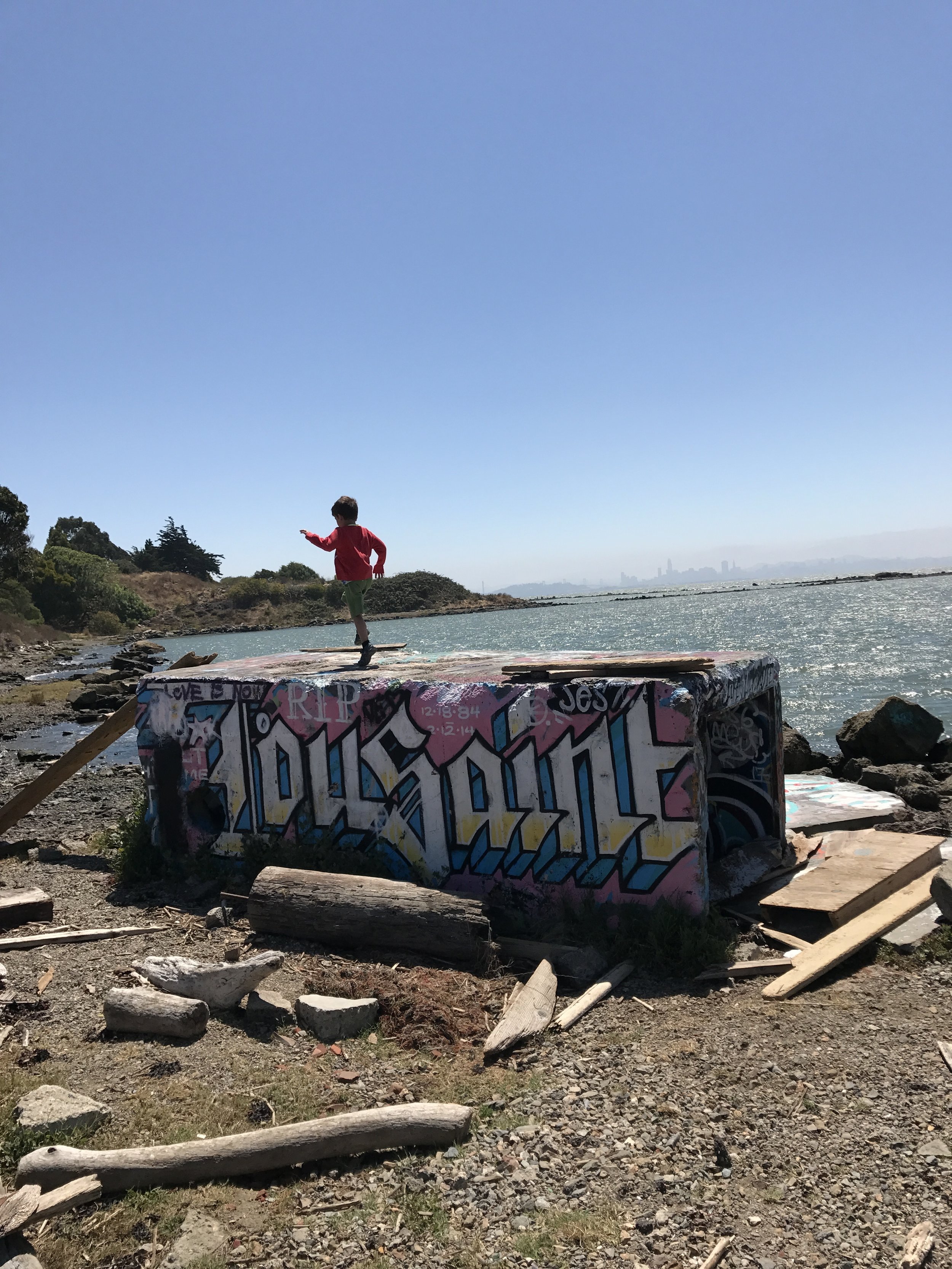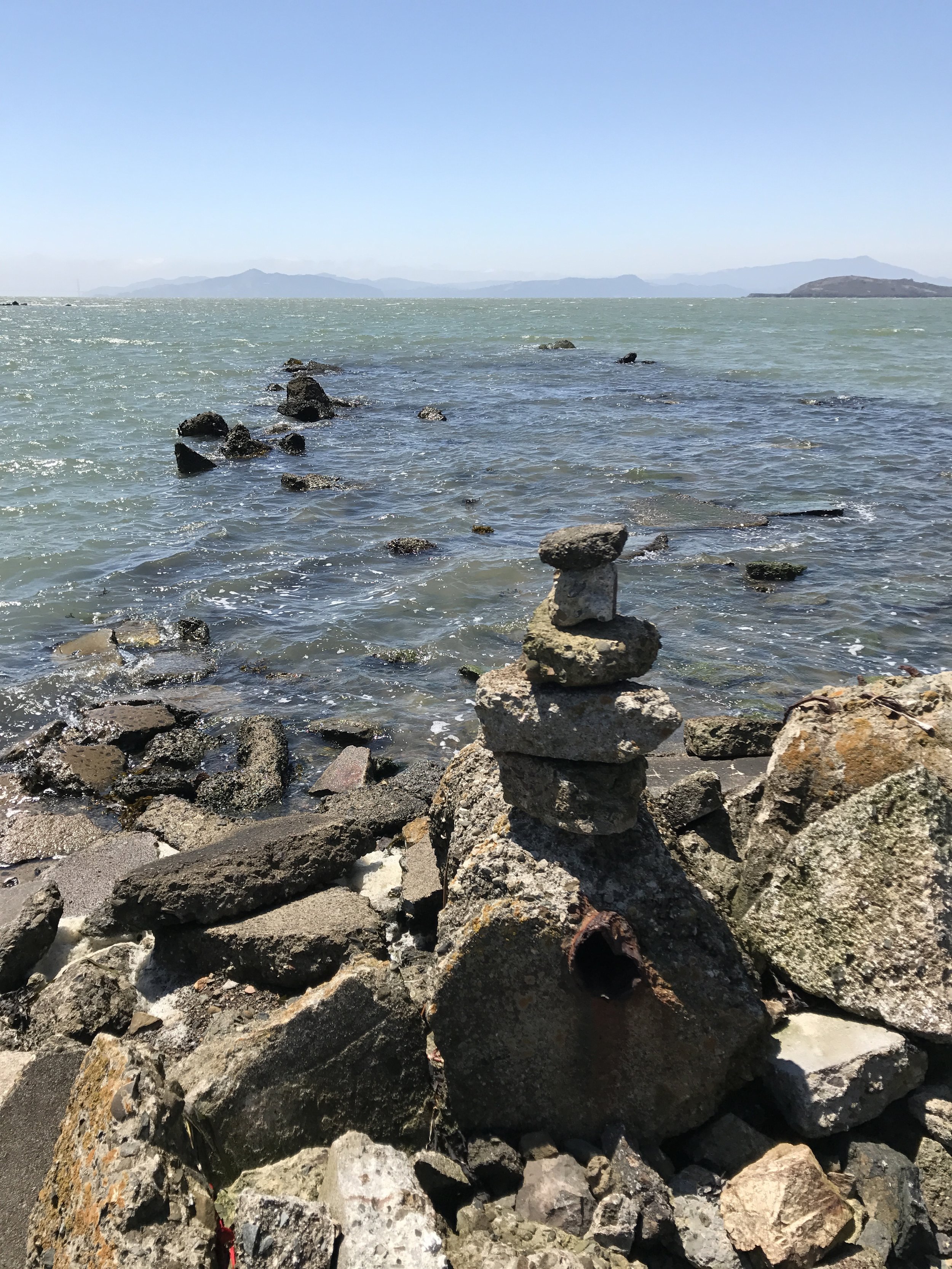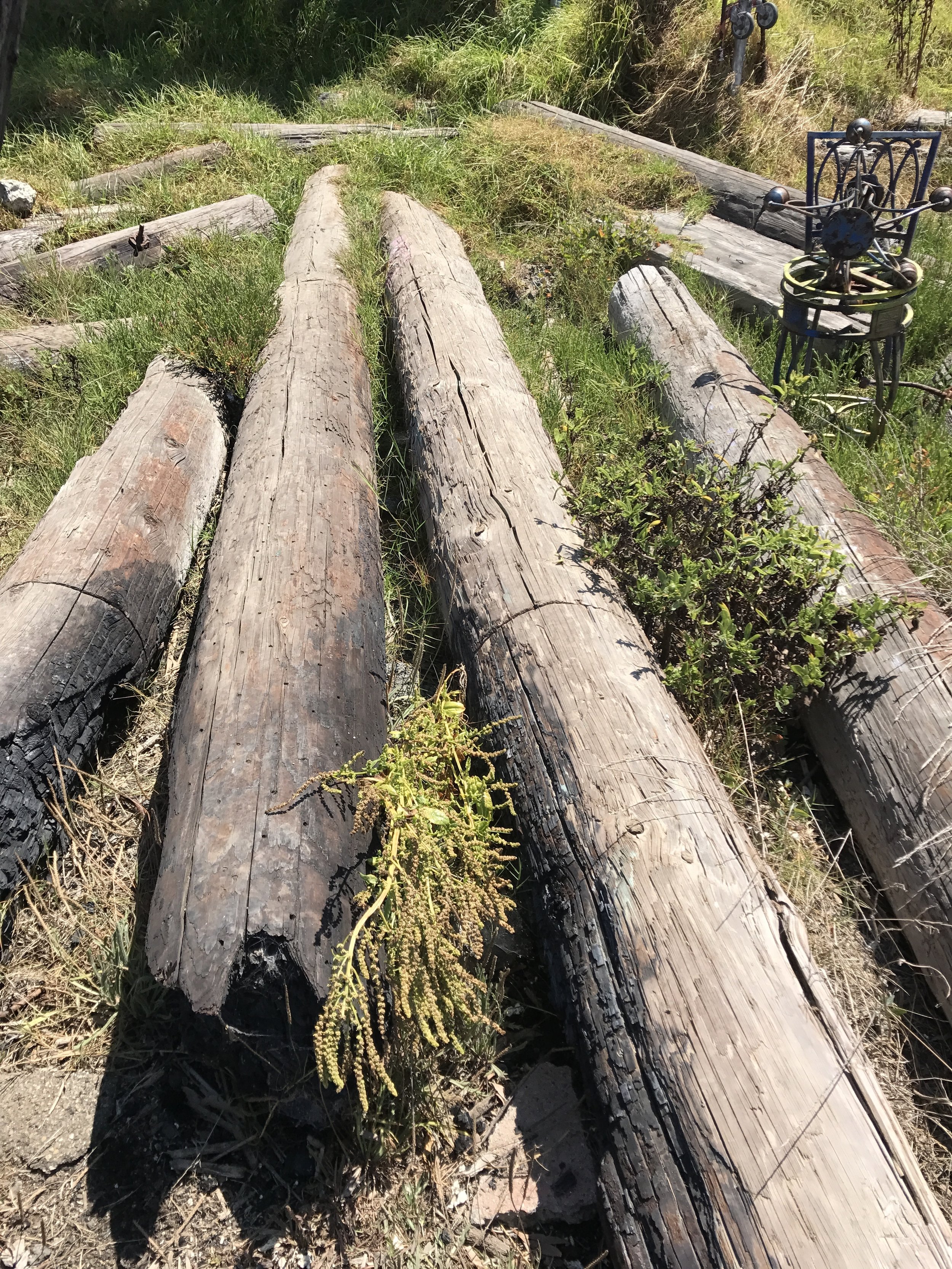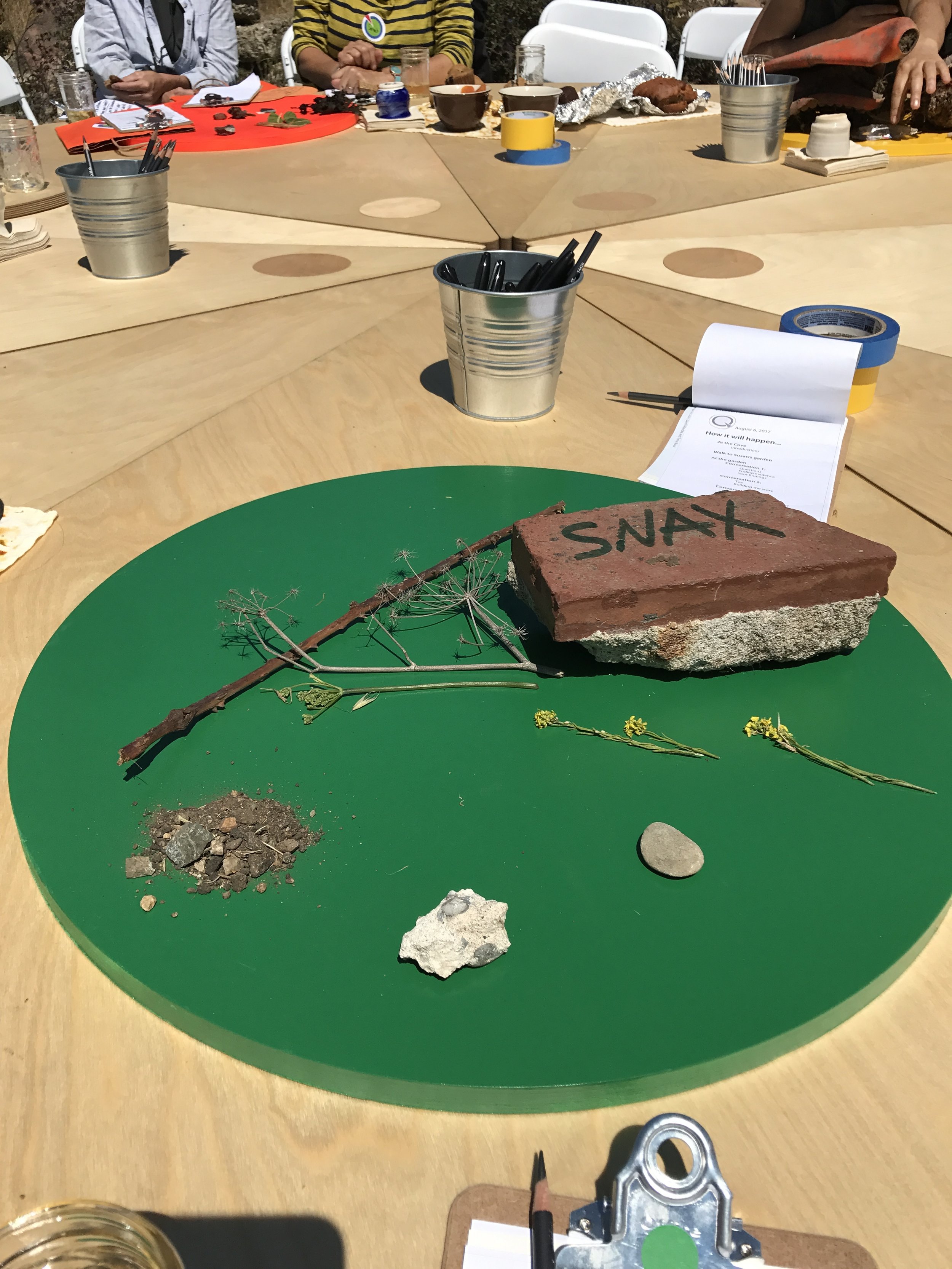On land and new narratives
This weekend, I had the chance to visit the Albany Bulb (map) for the first time. Formerly a landfill construction debris dump, then the home to a small community and their art pieces, and finally the site of eviction and potentially a redeveloped park for the regional park system, the Bulb has an interesting history that makes you think about rights to ownership, cultivation and settlement, and wilderness in the middle of a highly urbanized place. The entire time, we could look out from the edge of the water and see the San Francisco skyline from across the Bay.
Susan Moffat from tbe Global Urban Humanities Initiative at UC Berkeley has written a great article about the Albany Bulb here for further context and history.
I attended one of the first Sundays series organized by Love the Bulb called "Does the land have power"? Our goal was to ask if we could think of the land as a powerful entity, other than assuming a passive approach and one in which we assert our own upon it, which led to all sorts of questions, collecting of evidence, and eventually the creation of alternative narratives.
In my group, we were assigned "why" and came up with several questions. Mine in particular were:
Why do we assume land should be sustained?
Why do we think of land as laid out in a spectrum of temporality, i.e., past, present, and future?
Why do we assume the land can be understood?
Overall, it was a gorgeous day to be spent outdoors, thinking about our role and place on this earth. It was especially refreshing for those of us who work on land use issues all the time to think about the land as taking on a different personality. (The fun part for me was hearing "the land" spoken multiple times, which sounds like my name.)
